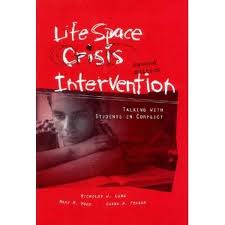LSCI Training offers trauma-informed intervention for students
“At Lincoln, the teachers and staff follow a few deceptively simple rules: Don’t take anything the student says personally and don’t mirror their behavior with an outburst of your own. The teachers give students time to calm down, often in the principal’s office or a special “quiet room.” Later, they inquire about what might be bothering them and ask if they want to talk about it.
Such seemingly straightforward techniques are actually based on hard science. In contrast to the fight-or-flight response triggered by perceived threats, seemingly minor acts of kindness, such as a few caring words from a teacher or a quick hug, can activate a cascade of Oxytocin, sometimes called the “love hormone.” In highly traumatized kids, such simple acts can have an outsized impact.
Kelsey says she was “shocked” when, after precipitating a violent fight with another girl during her freshman year, she wasn’t immediately arrested and kicked out of school. Instead, she went to the principal’s office to cool off. “I was given a bottle of water, a gentle pat on the back and time to reflect on my behavior,” recalled Kelsey. “Even the school cop talked to me calmly and helped me discuss what I had done.”
There were consequences: Kelsey was suspended for three days and charged with assault. But she never got into a fight again. “I saw that there were people in the building who cared about me and realized I could have gone to any of them to resolve the issue without a fight,” she said.”
Read on for more of this incredible article from The Atlantic. THIS is what LSCI practitioners have been doing for decades–allowing kids to Drain Off their intense emotions first, THEN using specific strategies to help them talk about their problems and learn new behaviors. THIS is the work that drives me and the reason I am so proud to be affiliated with the LSCI Institute!
To learn more, email me or visit www.lsci.org today to get certified in the skills of LSCI before the new school year begins!
http://www.theatlantic.com/education/archive/2016/07/teaching-traumatized-kids/490214/


Leave a Reply